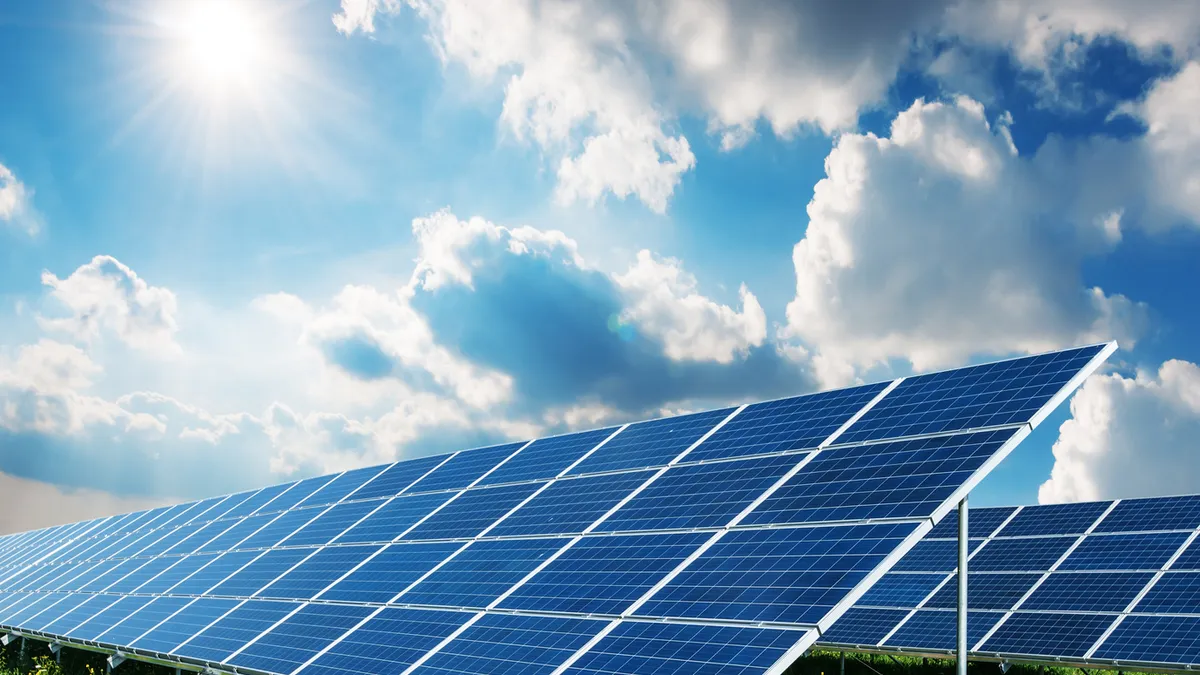Dive Brief:
- Large energy buyers should take a leading role in accelerating the carbon-free grid transition by expanding their approaches to clean energy procurement practices, the World Resources Institute (WRI) wrote in a report published Monday.
- Pursuing transmission buildout to increase access of clean energy, incorporating demand flexibility in procurement practices and getting more granular data on grid emissions, such as hourly matching, are some of the innovative approaches that cities and corporations with decarbonization goals have already taken to explore market products and opportunities across the grids they operate on, the report says.
- WRI calls for federal clean electricity standards to further push grid participants, power suppliers and utilities toward decarbonization. The clean energy payment program the Senate budget committee adopted in its reconciliation package would incentivize investments in clean energy and keep costs low for customers, although many environmental advocates, including WRI, said it does not go far enough.
Dive Insight:
WRI highlighted the efforts of Google; Microsoft; Apple; Des Moines, Iowa; Sacramento, California, and other large energy buyers to use different procurement practices with a focus on firm resources, reducing near-term emissions reductions, or enabling battery storage and carbon capture.
"We really need the buyers to revolutionize their procurement," Lori Bird, report author and WRI's U.S. energy program director, told reporters on Friday.
The establishment of regional transmission organizations and independent system operators "has been very beneficial" for nonutility procurement, Michael Terrell, Google's director of energy, told reporters during the WRI event.
Terrell, who chairs the board of the Renewable Energy Buyers Alliance, said that 80% of the renewable energy deals in the U.S. occur in deregulated wholesale markets.
Large energy customers operating in regulated markets served by monopoly utilities can work with utilities to establish green tariffs that respond to more ambitious goals, Terrell said. Duke Energy established one of the first such tariffs for Google in 2013, allowing the company to purchase renewables.
"I think utilities are willing to work with customers and set up programs and practices," Terrell said. "But we need to be moving more quickly, and we need to be moving at greater scale. ... Utilities can play a big role in that, but we shouldn't lose sight of the fact that we need to solve this big problem and we need to do it quickly."
WRI has worked with companies, cities and utilities on pathways to achieve clean energy goals. "There has been a response in that utilities have developed more green tariff programs and so forth," Bird said.
When it comes to evolving those utility offerings, customers can come together to express their interests to a utility, she said.
"That has happened in a number of regions and resulted in new products. So it's one of the ways that we have engaged in the market as well," Bird said.
Des Moines, which WRI reported as the first U.S. city to commit to a 24/7 carbon-free electricity target by 2035, sought allies in other customers of MidAmerican Energy, a subsidiary of Berkshire Hathaway. Des Moines' progress and approach is upheld as an example in the recent WRI study.
"We have a particular interest ... in other communities in MidAmerican service territory because those are colleague communities, and the more of us that raise our voice together, the more attention we're going to get with MidAmerican," Josh Mandelbaum, Des Moines council member and senior attorney with the Environmental Law and Policy Center, said during the roundtable.
As the utility serving Des Moines, MidAmerican has a significant amount of wind energy and a 100% renewable energy vision based on renewable energy credits, or buying renewable energy on behalf of customer needs, but the utility has not announced any official plans to retire its coal plants.
"We need to work with them, and they need to be a part of this," Mandelbaum said of the utility. "We're going to be pushing to see more renewable assets on that grid in Iowa, and there's just a natural tension with that because they want to do it on their terms and on their timeline."














